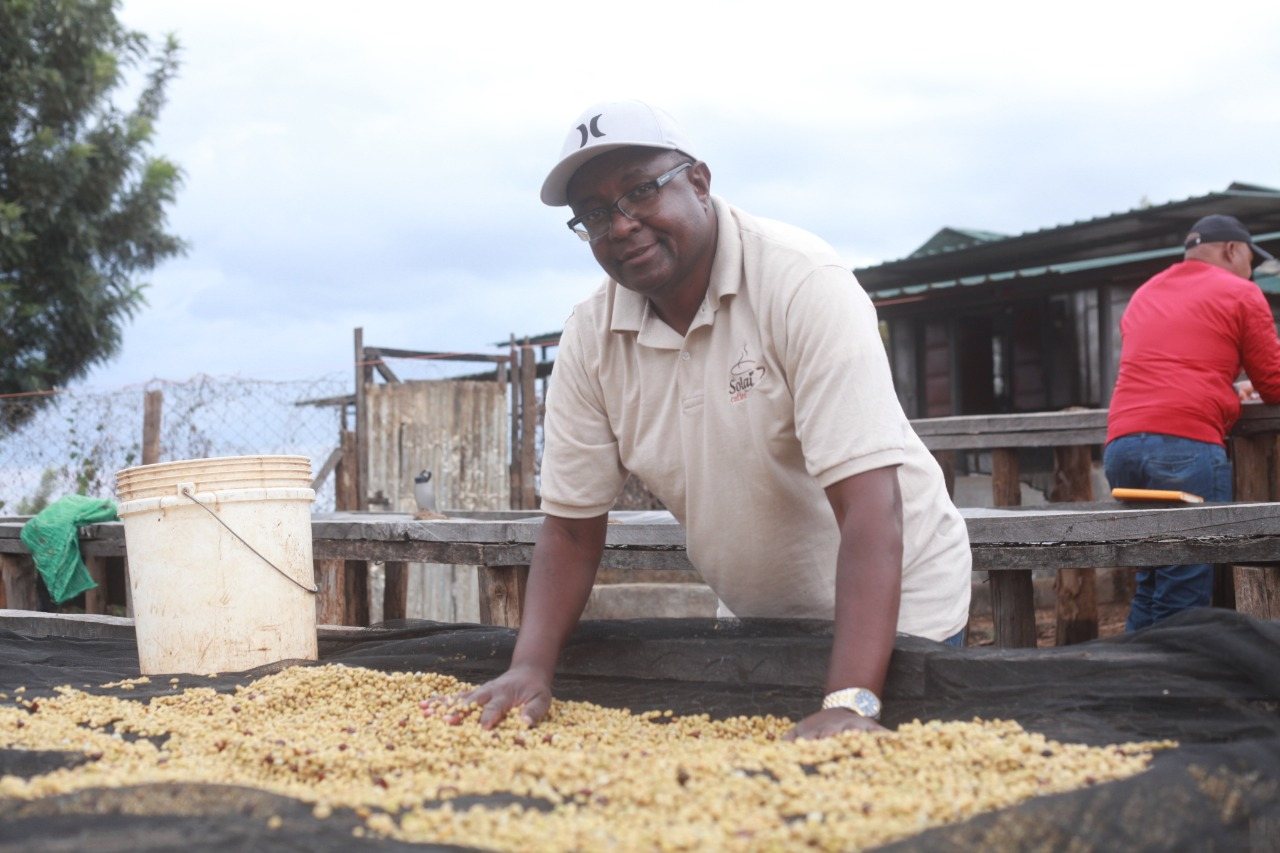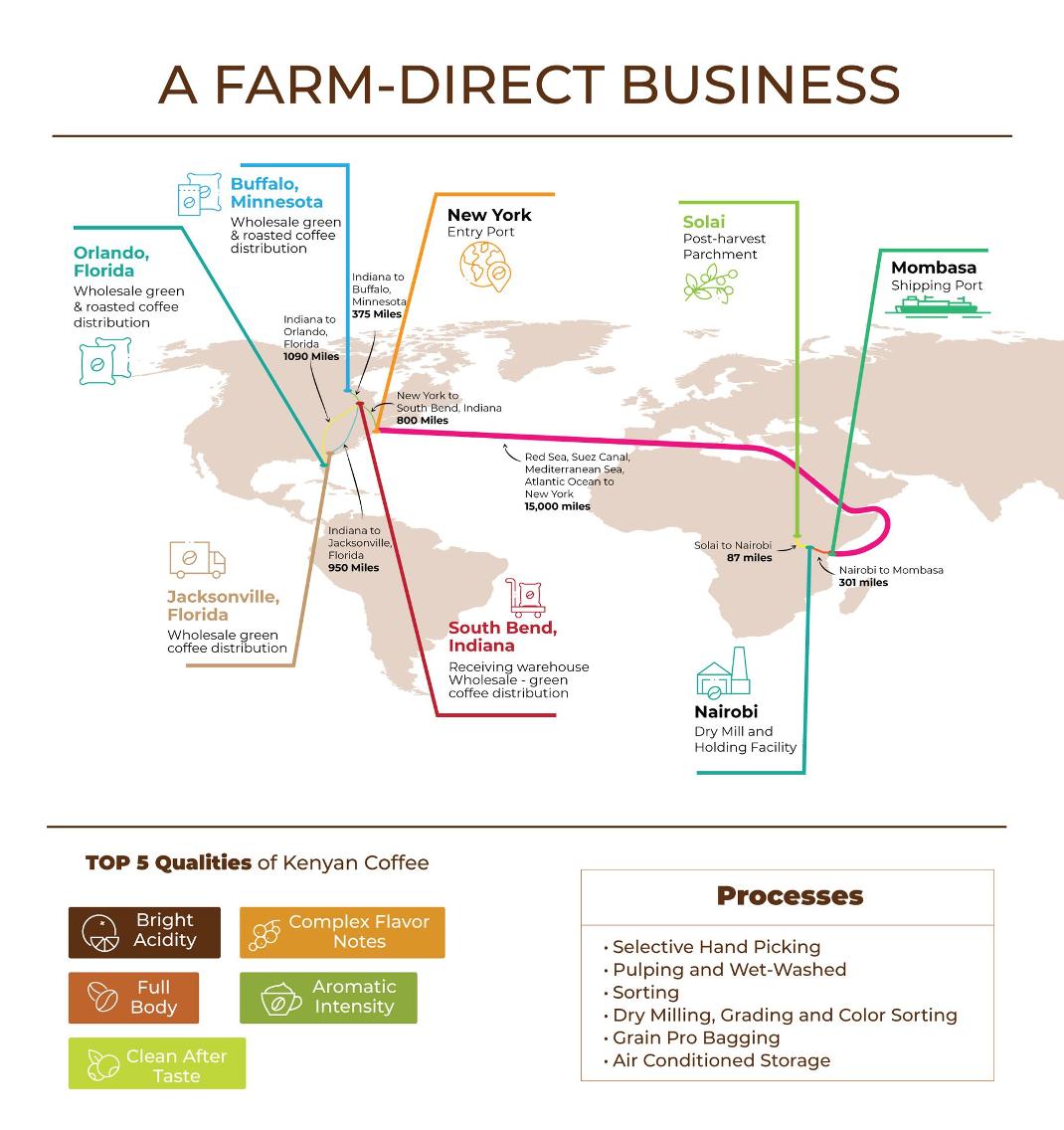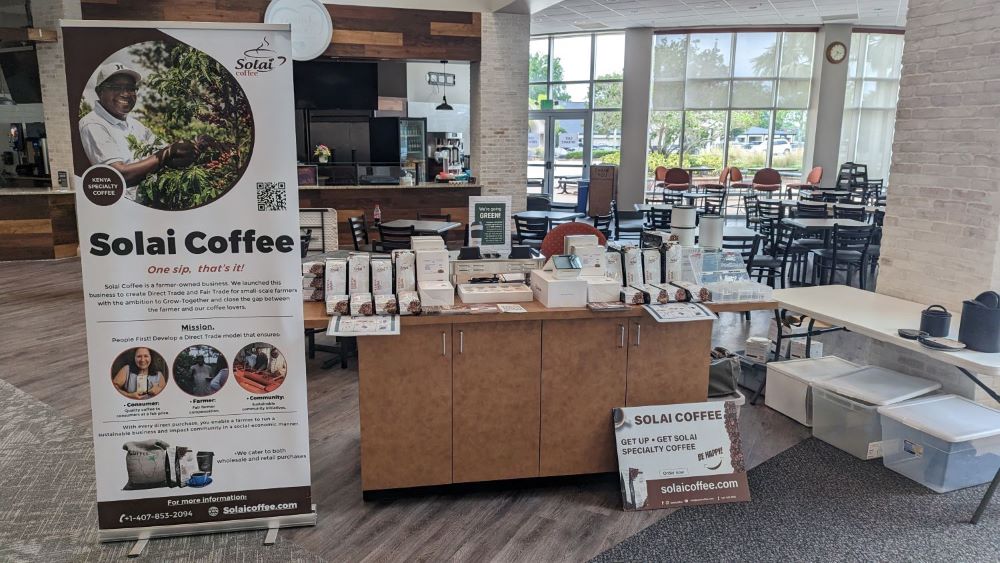Coffee lovers around the world cherish perfectly brewed cups of joe, often without realizing the complex journey each bean takes from farm to cup. Each sip of coffee is the result of a meticulous process involving dedicated farmers, careful processing, and thoughtful distribution. From the moment coffee cherries are hand-picked to the final roasting and brewing stages, every step is crucial in delivering the rich, flavorful experience coffee enthusiasts enjoy daily.

At Solai Coffee, we believe in guiding our consumers through our supply chain and showcasing the importance of fair trade, direct trade, and transparent sourcing practices.
Join us on this journey and experience the true essence of sustainably sourced, high-quality coffee. Your choice matters. Choose Solai Coffee and make a difference with every cup.
How Coffee Supply Chain Works
A supply chain is the process of manufacturing or delivering a given product to an end consumer. The coffee supply chain involves multiple steps to deliver high-quality coffee beans from the farm to your cup. It begins with the meticulous harvesting of coffee cherries and continues through various stages, including processing, milling, exporting, roasting, and brewing.
The journey of Solai Coffee starts in Solai coffee farms, Nakuru, the highlands of Kenya. Here's a step-by-step look at the path the coffee farmers take to make the finest bean for your cup:
- Selective Hand Picking: The coffee journey begins with meticulous hand-picking of the ripest coffee cherries in Solai coffee farms, ensuring only the best ripe cherries.
- Pulping and Wet-Washing: Post-harvest, the cherries undergo pulping and wet-washing to remove the outer layers, enhancing the beans' inherent flavors.
- Sorting and Grading: The pulped cherries undergo sorting and grading based on size, weight, and quality, ensuring consistency.
- Dry Milling: The next step involves dry milling, where the beans undergo hulling, polishing, and further sorting.
- Bagging and Storage: Finally, the beans are bagged in Sisal Gunny bags and stored in air-conditioned facilities in Nairobi, preserving their freshness and quality.
Read more about the Coffee Harvesting Process in Kenya.
Solai Coffee supply chain breakdown
The carefully processed single- origin coffee beans begin the next leg of their journey from the storehouse in Nairobi. They travel 301 miles to Mombasa's shipping port, preparing for an extensive voyage. The beans then set sail on a 15,000-mile expedition, navigating through the Red Sea, Suez Canal, Mediterranean Sea, and the vast Atlantic Ocean, ultimately reaching the entry port in New York.
Upon arrival in New York, the green coffee beans travel to various key locations across the United States, including South Bend, Indiana; Buffalo, Minnesota; Orlando, Florida; and Jacksonville, Florida. Each destination serves as a hub for further distribution, ensuring that the coffee reaches consumers nationwide fresh and in excellent quality.
Solai Coffee collaborates with various roasters across different states, including Coffee Innovation, Credo Coffee, and Custom Roasting in Minneapolis.
Our coffee is available to retail and wholesale customers in green beans, roasted, or ground coffee. We also offer drop shipping options for private labels.

The Role of Fair Trade and Direct Trade in the Solai Coffee Supply Chain
Fair Trade Coffee: Empowering Farmers and Promoting Sustainability
Fair Trade is more than just a label; it's a commitment to fairness, sustainability, and social responsibility. This model ensures that coffee farmers in developing countries receive a fair price for their beans, which helps promote sustainable coffee farming practices and improve the quality of life for farmers and their communities.
Here's a closer look at the core principles of the fair trade model:
- Guaranteed Minimum Prices: One of the cornerstones of fair trade is the assurance of a minimum price for coffee beans. This approach protects farmers from the volatility of global coffee markets, ensuring they can cover their production costs and maintain a stable income. This security enables farmers to plan for the future and invest in their farms.
- Community Development: Fairtrade premiums are additional profits paid on top of the market price. These funds allow small-scale farmers to foster better living conditions and improve local infrastructure, such as healthcare facilities and schools.
- Environmental Sustainability: Farmers are encouraged to adopt eco-friendly farming methods, such as organic farming, reducing harmful pesticides, and preserving natural resources. These practices help protect the environment and ensure the long-term viability of coffee farming.
Your choice to buy Solai Coffee is not just a purchase; it's a statement that you support Fair Trade Coffee, empower farmers, and promote sustainability. Your choice makes a difference, and we are grateful for your support.
Direct Trade Coffee: Building Direct Connections for Quality and Fairness
Direct trade coffee takes a different approach to ethical sourcing by fostering direct relationships between consumers and farmers, eliminating the need for intermediaries. This model focuses on several principles that provide both quality and fairness in the coffee industry:
- Quality Control: By establishing direct relationships with farmers, consumers can have greater oversight and influence over the growing and processing practices. This direct connection allows for more stringent quality control, producing higher-quality beans. Solai Coffee works closely with farmers to implement best practices and innovations that enhance the flavor and consistency of the coffee.
- Transparency: Direct trade fosters openness in the coffee supply chain. Open communication between producers and consumers builds trust and allows a better understanding of each other's needs and challenges. This transparency ensures that consumers know exactly where their coffee comes from and the production conditions, fostering a deeper connection to the product.
- Higher Earnings for Farmers and Cost Savings for Consumers: Direct trade ensures farmers get better returns by cutting out intermediaries. This model often involves negotiating prices well above the fair trade minimum, providing farmers better livelihoods. Consumers also benefit from this model, often spending less on their beans due to the direct supply chain, thus saving money.

By choosing direct-trade coffee from Solai Coffee, you support a system prioritizing quality, transparency, and fairness. This ensures a superior coffee experience while contributing to the well-being of farmers.
Visit our sourcing page
Why Transparent Sourcing Matters to Younger Consumers
Younger coffee consumers are increasingly prioritizing transparency and sustainability in their purchasing decisions. Specialty coffee, known for its high quality and ethical sourcing, particularly appeals to this demographic. They want to know the origin of their products and the impact their purchases have on the world.
Transparent sourcing practices in coffee, like those employed by Solai Coffee, offer several benefits:
- Ethical Assurance: Consumers can trust that their coffee supports fair labor practices and sustainable farming.
- Quality Assurance: Transparent practices often lead to higher-quality products.
- Environmental Impact: Supporting eco-friendly practices reduces the carbon footprint and promotes biodiversity.
At Solai Coffee, our commitment to fair trade, direct trade, and transparent sourcing practices is at the heart of our business.
Each purchase of Solai Coffee supports ethical practices that benefit hardworking farmers, conscious consumers like you, and the planet we all share.
For more insights into our sustainable practices and to explore our range of premium coffees, Click below.
Order now and taste the difference that ethical sourcing makes.
Exploring the Coffee Supply Chain